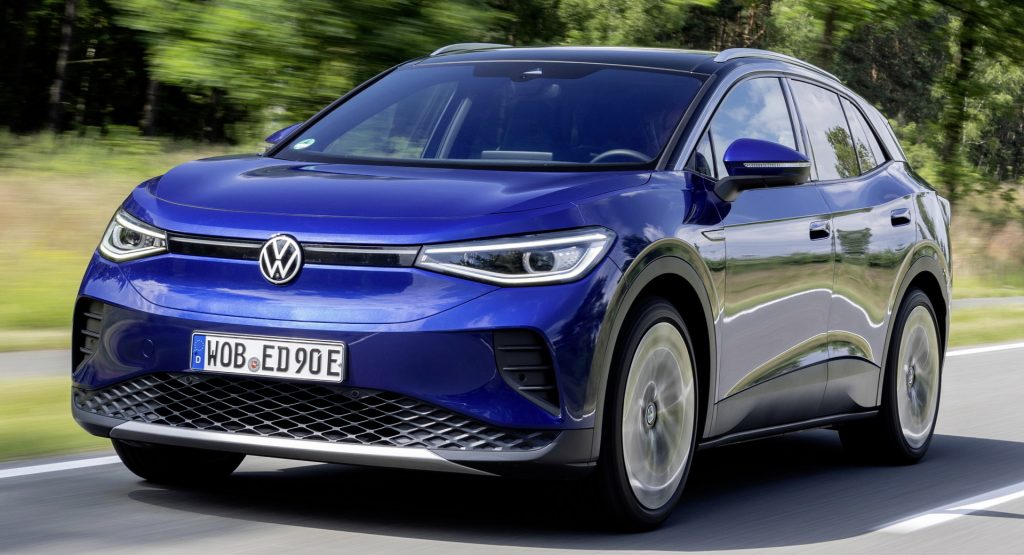The Volkswagen Group announced today that, despite continuing supply chain disruptions, it managed to sell 65 percent more electric vehicles in the first three months of 2022 than it did in the same period in 2021.
Sales were led by the ID.4, of which VW sold 30,300. Out of a total of 99,100 EVs sold globally, the crossover made up 30.5 percent of all-electric sales for all of the automaking giant’s brands.
It was followed by the VW ID.3, of which it sold 13,000; the Audi Q4 e-tron, of which 10,700 were sold; the Audi e-tron, with 10,300 sales; and the Porsche Taycan, of which 9,500 were sold in all.
Read Also: Battery-Electric Vehicle Sales Accounted For 6% Of Global Car Sales Last Year
As that data suggests, the Volkswagen brand was the group’s best-seller by volume, delivering 53,400 EVs around the world in Q1, 2022. It was followed by Audi (24,200), Porsche (9,500), Skoda (8,800), and SEAT/CUPRA (2,200).
The group was strongest in its home market, Europe, where it sold a total of 58,400 EVs between January and March 2022. Although that was an impressive increase of 33.5 percent over the same period in 2021, it was the fastest-growing market.
Just 28,800 Volkswagen Group EVs were sold in China in the last three months, but that was a remarkable 360.5 percent more than the 6,200 it managed to deliver there last year. China is the world’s largest car market and a major purchaser of EVs, making it an important country for all automotive manufacturers.
Sales of EVs in the U.S., meanwhile, were a little less impressive. The group managed to sell just 7,900 electric vehicles in the American market, where all of the top five best-selling group vehicles are offered. That did, however, mark an increase of 16.2 percent in sales. The automaker will soon start making electric vehicles in the U.S., which may accelerate sales.






